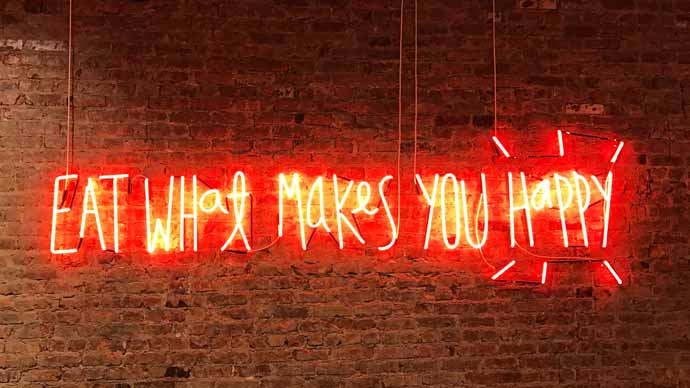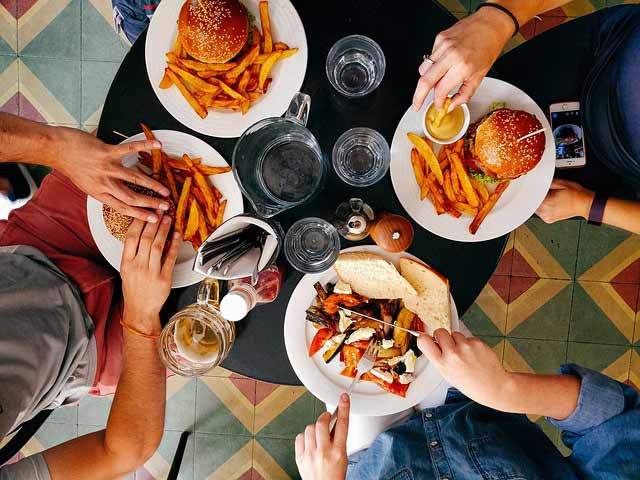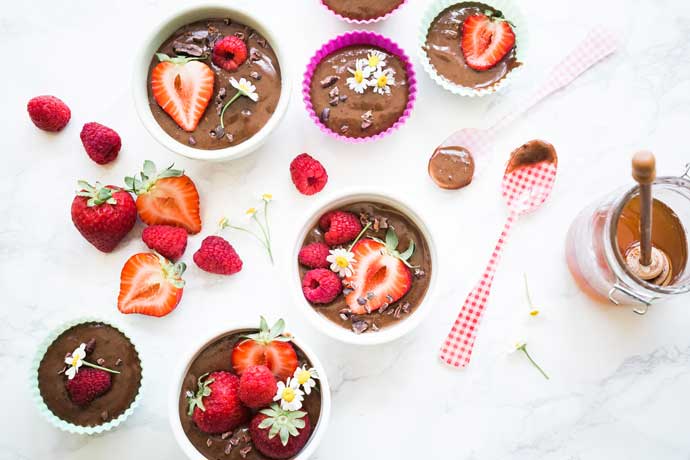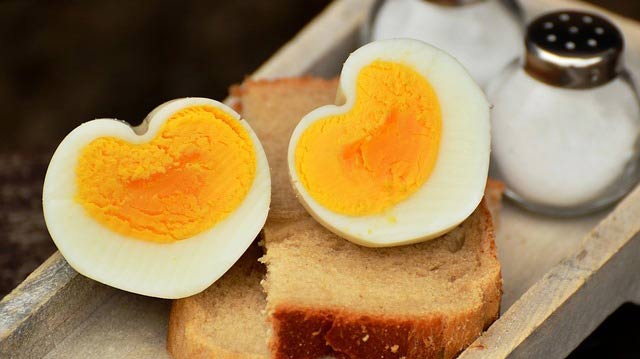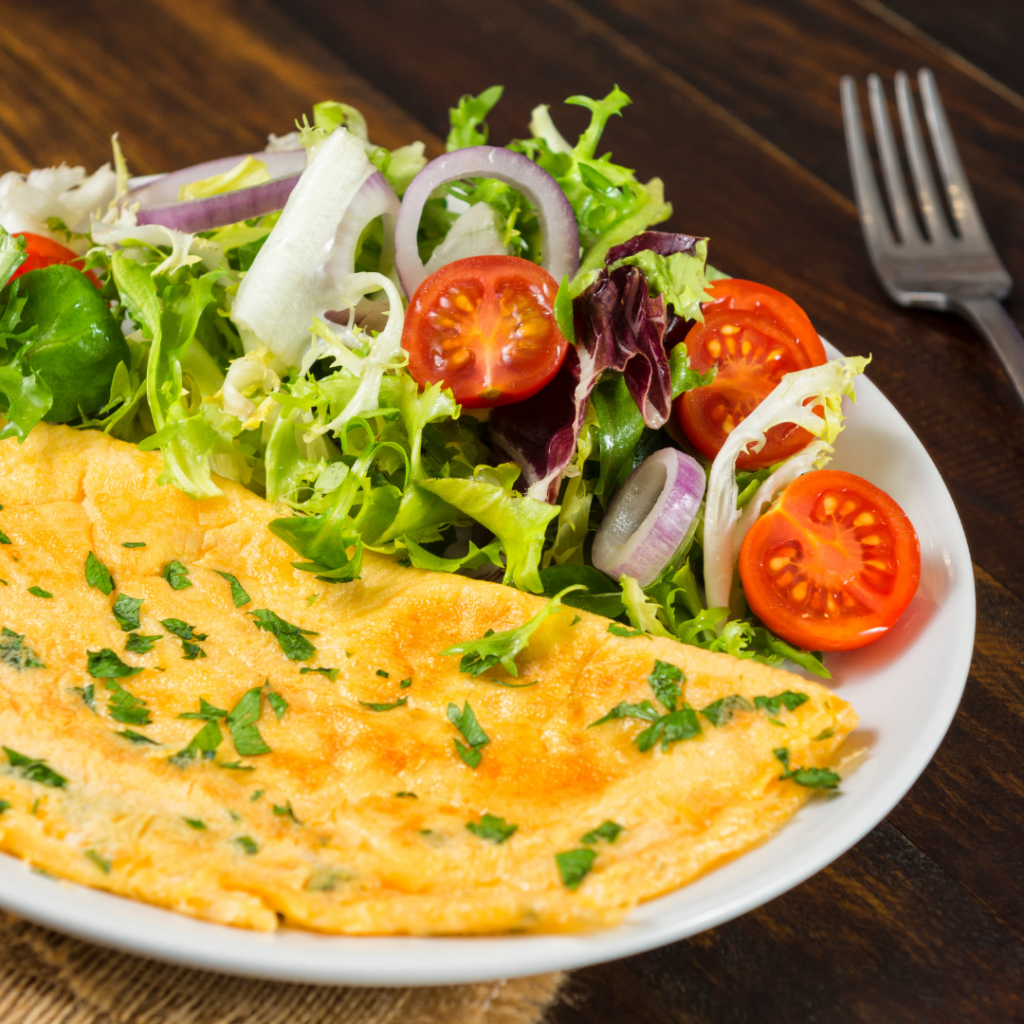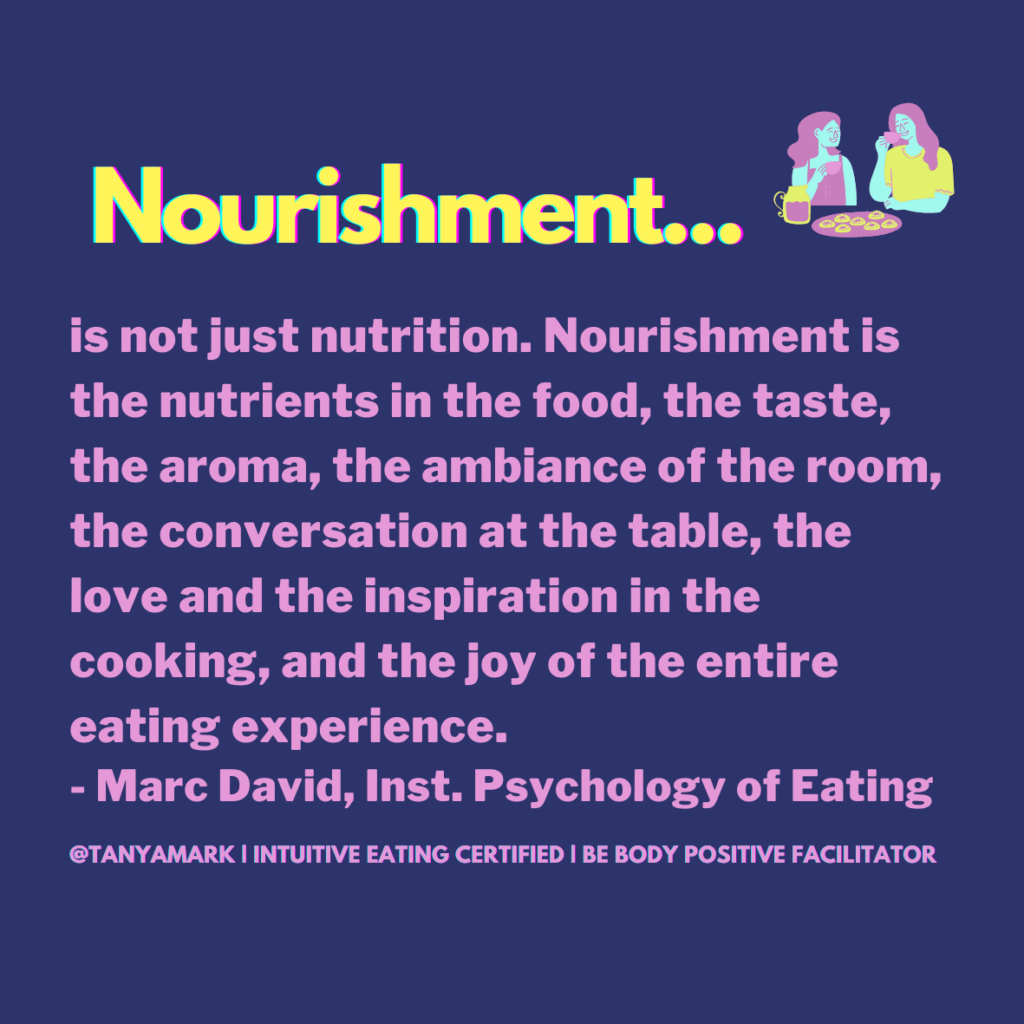When we were born, we instinctively knew how to eat. But as we move through life, we are impacted by the messages from the world around us. We’re taught over and over again about what to eat. And the “what” we should eat shifts year after year.
These lessons come from family members (more often than not with good intentions), the latest clean eating book, social media and more. And that finger wagging at us telling us we shouldn’t eat this or that, comes from our own thoughts and self-judgement about food and our bodies that we’ve learned from living in diet culture.
Intuitive Eating
Most of us need to relearn how to eat. Learning how to eat again through a self-care framework called Intuitive Eating (IE) developed by Evelyn Tribole and Elyse Resch. IE teaches us to let good of food rules, to develop body trust and finally have the healthy relationship with food and our bodies that we desire.
Tapping into intuitive eating practices can help us with perceived eating challenges such as:
- over-eating, believing we need portion control
- mindless eating, “emotional” eating, eating when not physically hungry
- craving, sneaking or “bingeing” on “bad” or “forbidden” foods
These perceived eating challenges are often symptoms of disconnected eating and diet culture restrictions. So many of us struggle with them. I did. And that’s what led me to study and support clients through the process of Intuitive Eating.
So, what is Intuitive Eating?
First things first, Intuitive Eating isn’t another goal to accomplish. There is no success or failure. It’s a lifelong journey of reconnecting with yourself and nourishing yourself. For many of us, it’s a relearning.
The 10 Principles of Intuitive Eating include:
Rejecting the Diet Mentality
If we don’t “diet” then what should we do? There is no “quick fix” for our underlying challenges with food. Every year there is the latest greatest eating plan. Yes, you might have “success” with one or more, but how long does it last? And at what cost – as “diets” are called the “life thief” by Christy Harrison, author, Anti-Diet.
Our challenges with food are often symptoms asking us to look deeper. And the messages will get louder and louder (over the years) until we finally listen and do the deeper work.
I can hear you now…“but I HAVE to control my eating so I must be on an eating plan or diet.” While the focus of Intuitive Eating isn’t on weight loss, it’s absolutely about honoring your whole health – physically, mentally and emotionally.

The focus of IE is on our relationship with food and body and the rewards are great.
So, what’s driving our unwanted behaviors with food? This is the bigger question. This is the question we should be asking and addressing. After the diet or eating plan is over, we are still left with our unique selves and our unique relationship with food. Some of us have been on and off eating plans for most of our lives that we don’t know how to eat without a set of rules to follow. So let’s learn to eat again. It’s a practice.
Honor Your Hunger
Your body knows when it needs food, and it will tell you so. In fact, if you’re depriving your body of certain macronutrients and/or overall calories, it will eventually drive you to “overeat” which is really just primal hunger. This drive may even feel like a “binge” when in fact it may be purely a physical need for, well, more food that you’re feeding your body.
Everyone is unique, but for some, it may be helpful to have a regular eating rhythm or feed yourself when feeling gentle hunger so that you don’t get to the breaking point of “OMG I’m so hungry I’m going to eat everything in sight.” In order to do so, we must connect with gentle hunger, by listening for our unique internal physical body cues, interoceptive awareness, which is foundational to the practice of Intuitive Eating.
Peace ☮️ Out
Make peace with food. It’s not out to get you. You may have fear of food making you “fat” or certain foods will “kill” you. But they key to developing a healthy relationship with food is to give yourself unconditional permission to eat.
WHATTTT!!!! I know this concept sounds scary but if you constantly tell yourself you can’t or shouldn’t eat certain foods, it can lead to intense feelings of deprivation that can lead to uncontrollable cravings and “binge” eating, which then can lead to guilt.
Intuitive eating has a strategy called habituation that is designed to help you make peace with your list of “forbidden” or “bad” foods. This practice has created powerful shifts in the eating mindset for many of my clients (and no, you won’t want to eat oreos all day, every day).
Challenge your inner Food Police
Are you “good” (follow the rules) or “bad” (breaking the rules)? Do you identify with being “bad” for eating too many cookies, or “good” for eating a salad when you really hunger for a sandwich? The Food Police have rules that have been drilled into our brains for years. Intuitive Eating works to break down the power they hold over you.
This doesn’t mean that you throw caution to the wind and let your inner rebel eat whatever you want. Instead it’s about not having to live by outside rules and having to control yourself all the time. Let’s soften. There’s a middle ground that’s more easeful.
Listen for Fullness Clues
Your body will tell you when it’s satiated. You just need to listen. Bringing awareness to the plate is essential to feel satiety. Mindless, distracted, fast eating, which is so common these days, mutes the signal for satiety. See food and the eating experience as nourishment for not just your body, but your mind and soul (not just as fuel).
Embrace Satisfaction
In our desire to fit culture’s ideals, we may stray from one important nutritional element – pleasure. Enjoyment needs to be a part of the eating process in order to feel satisfied.
The next time you eat, notice, are you satisfied with what you’re eating? I remember distinctly when I was a teenager trying to “be good” by eating fat free food after fat free food and overall eating a lot because I never received any satisfaction from my list of “good” foods. Why? Because my desire for smaller thighs spoke louder than receiving satisfaction from my food. At first. Eventually, I dove into the Alfredo pasta.
Now I eat foods that satisfy me without deprivation and it’s just no big deal (and no longer the “forbidden, guilt-ridden” pasta.
Honor Your Feelings With Kindness
We’re all emotional eaters. It’s useful to find ways to comfort yourself in difficult times that don’t involve food. For example, find an outlet to cure boredom that doesn’t involve eating. Food won’t change any of those feelings even though it might distract or soothe in the short term.
Identifying the underlying emotion is a fantastic step if feeding your emotions has become your habit. Remember eating for emotions reasons is normal. It’s not “bad”. If it becomes your “go-to,” we can help you explore new ways to feel and cope beyond food.
Respect and Accept Your Body
Learn to respect your human body. Accept your unique genetic blueprint. Consider if you were constantly trying to make your size 8 foot fit into a size 6 shoe.
Being overcritical of yourself makes it extremely challenging to reject the diet mentality. As a Body Image Movement Global Ambassador, I help clients practice body neutrality, which means that you don’t have to “love” every aspect of your body rather you practice having more compassion towards yourself as a human being.
All bodies deserve respect. Period.
I help you put your health in perspective and soften the habit of constantly comparing yourself to ideal body images that less than 5% of us naturally possess. It’s time for a reality check!
Move Your Body
Give up the rigorous weight-loss focused workout programs and, instead, move your body in ways that bring you joy and make you feel good. I love exercise, yet, I’ve shifted to movement that feels good not just physically but movement that also feeds my mind and spirit.
And remember, more isn’t necessarily better. Tune in and become more aware of the signals that your body is sending. Are you still tired and feel like you have to drag yourself to your next workout? Or do you look forward to your next yoga class because it allows you to slow down, breathe and press the pause button?
Honor Your Health with Gentle Nutrition
Remember that you don't have to eat "perfectly" in order to be healthy. It's what you eat consistently, over long periods of time that matter. The key term is "for the most part." Honoring your health by eating healthy foods most of the time can come naturally when you reclaim intuitive eating. It's an important concept of intuitive eating.Keep In Mind
Your diet is not only what you eat. It’s what you watch, what you listen to, what you read, the people you hang around…be mindful of the things you put into your body emotionally, physically and spiritually.
- Tiny Buddha
While these are the 10 principles to consider to help you reconnect to self nourishment, make sure this list doesn’t become a check-list, a “to-do” list where you accomplish it or not, succeed or fail. Because then again, intuitive eating can become another kind of “diet” or eating plan, full of “rules.”
Intuitive Eating…
- It’s about reconnecting with yourself and nourishment.
- It’s about tuning in to your unique body’s needs, instead of tuning out.
- It’s about slowing down with food and with life, trying to fit it all in.
- It’s about saying “yes” to yourself, making self-nourishment a priority…so that you can take care of others and feel and BE your best self.
- And again, it’s not another list of rules or an item to add to your “to-do” list!
Doesn’t that sound lovely? I invite you to relearn how to eat again.
Have a question, comment or would love support and guidance through the Intuitive Eating journey? Reach out!
- Tanya


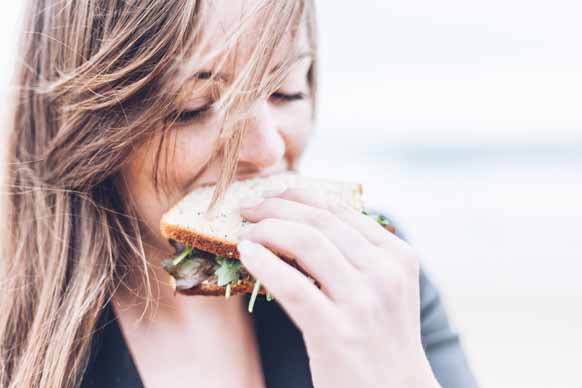
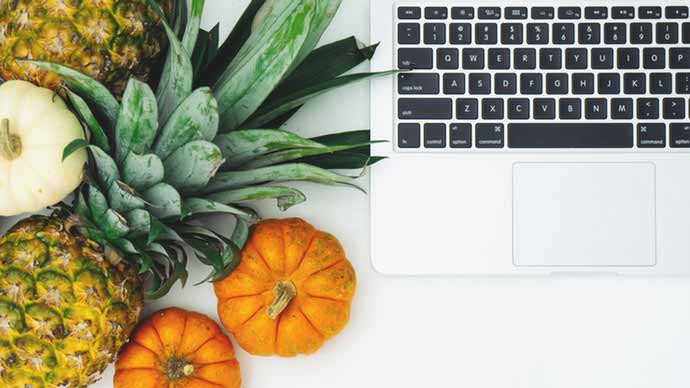
![You are more than what you eat + [what you think and feel about it matters more]](https://www.tanyamark.com/wp-content/uploads/2022/08/content_mind-over-food.jpg)
